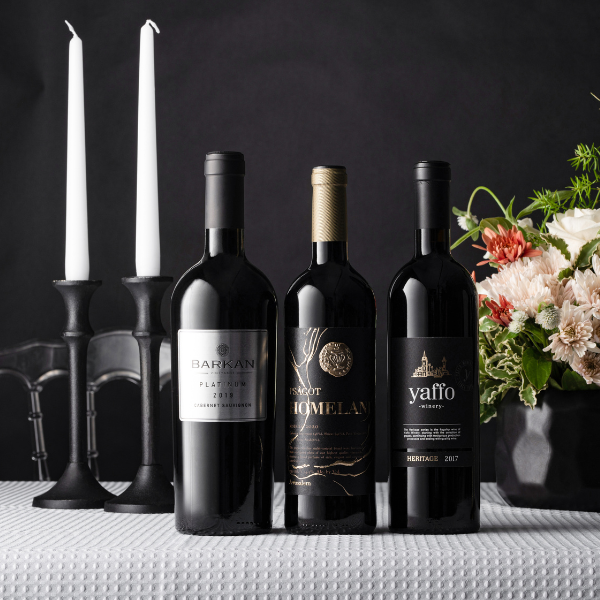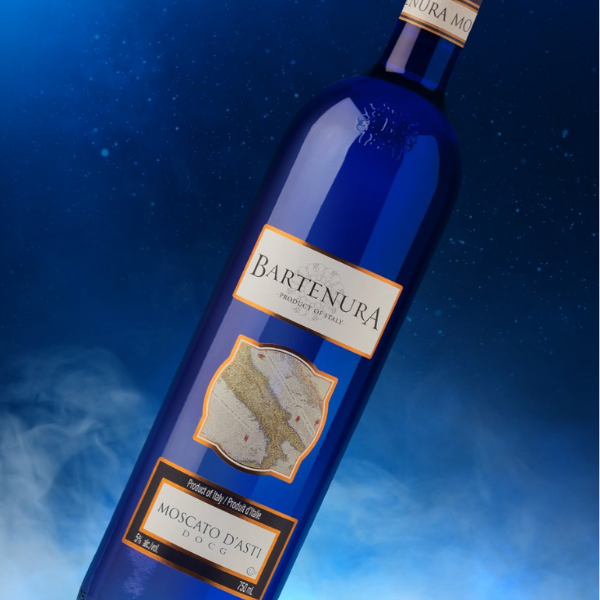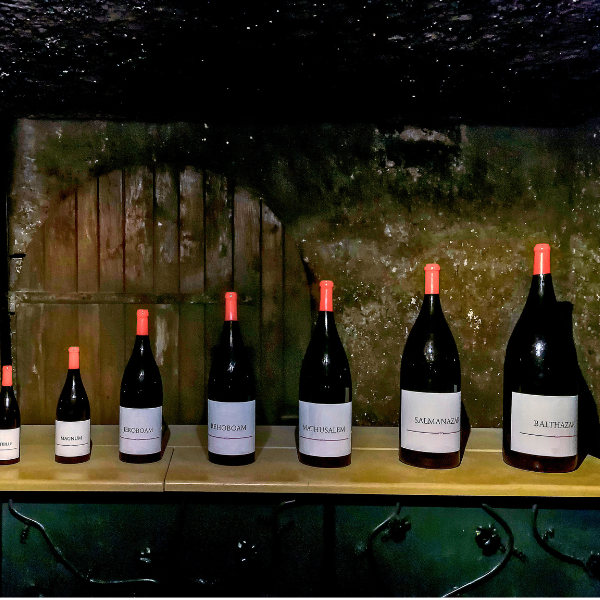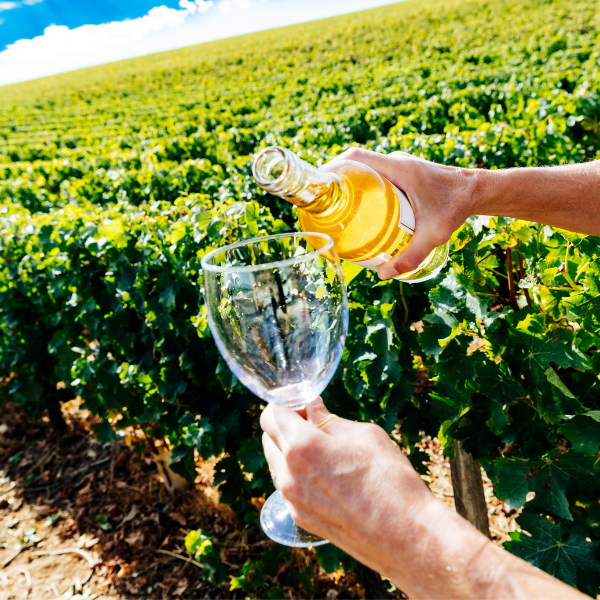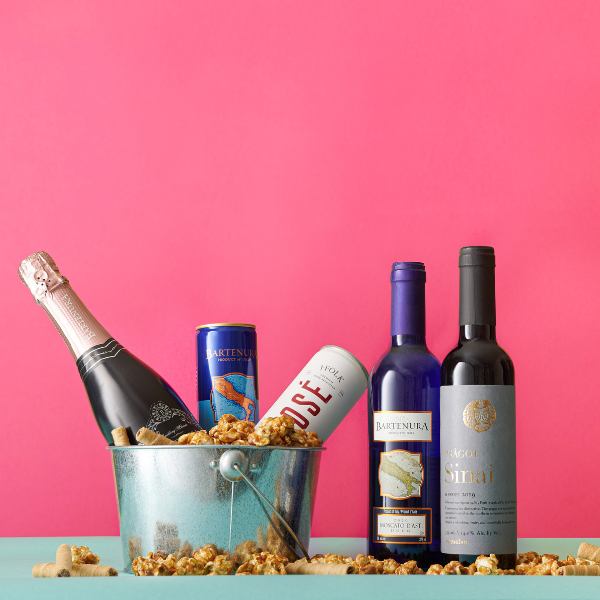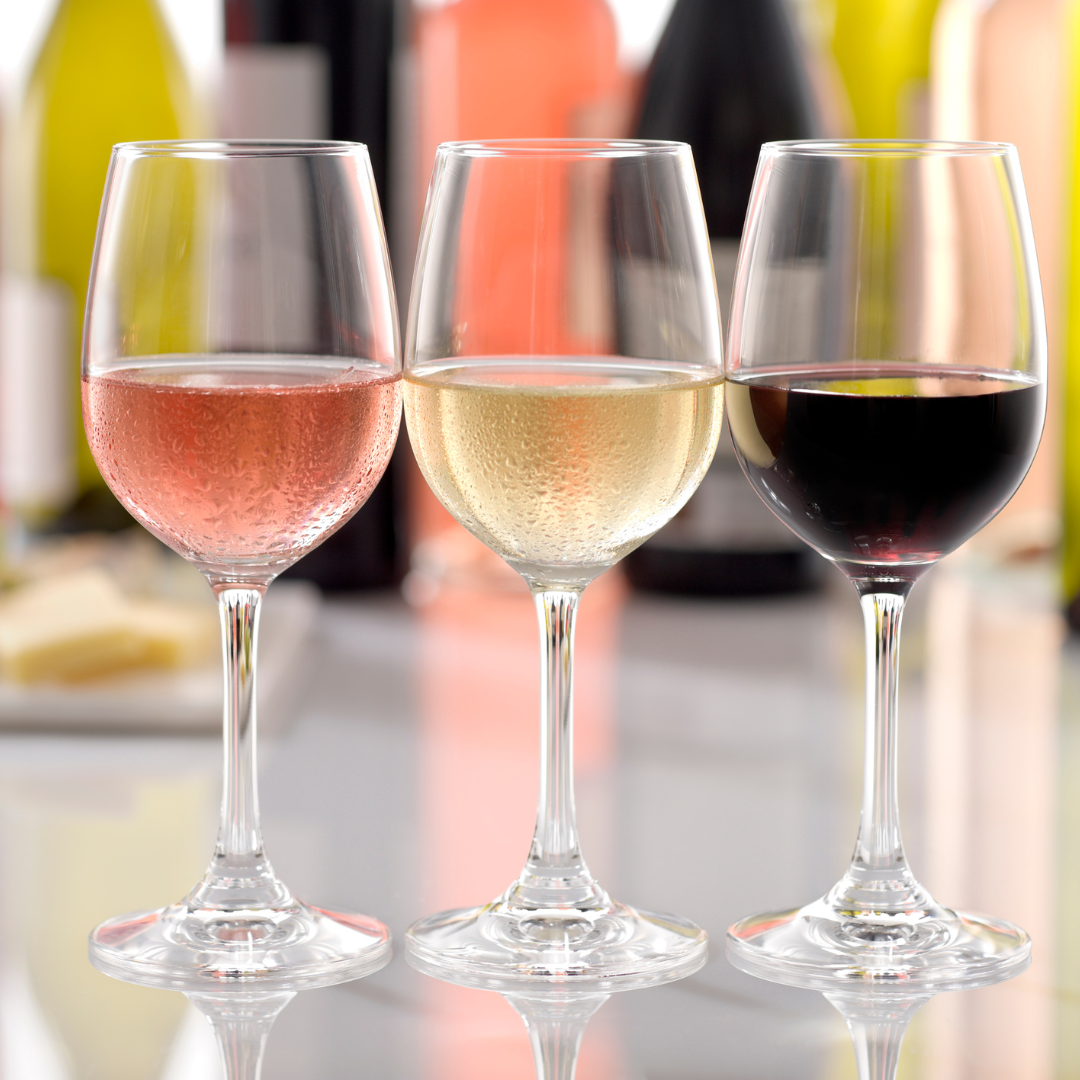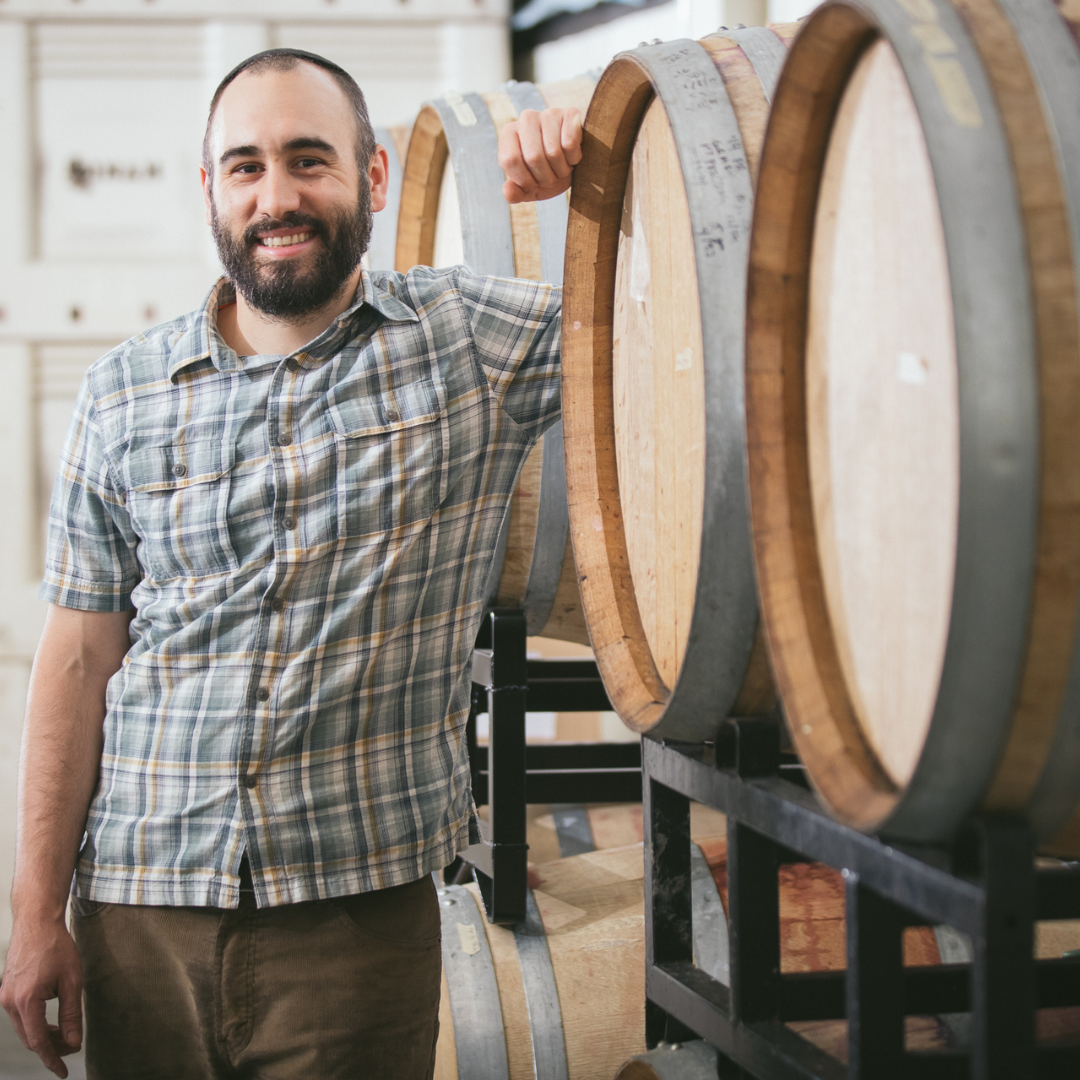Barkan: Indigenous Varietals & Modern Winemaking
- Nov 7, 2022
By Dr. Kenneth Friedman
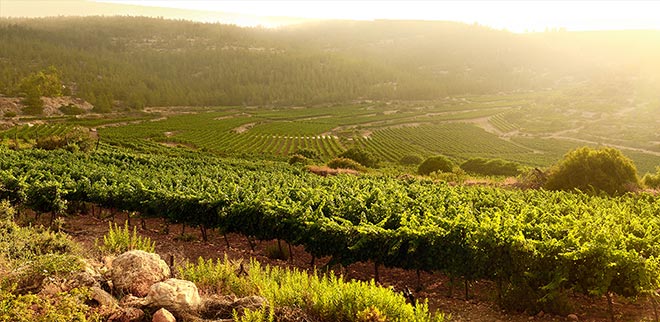

An Interview with Ido Lewinsohn MW, Barkan Wine Cellars' Chief Winemaker
As the modern Israeli winemaking scene blossoms and thrives as it builds upon the building blocks of an ancient wine region, there are those who help steward the path into the future. As Head Winemaker of Barkan-Segal Wine Cellars, Ido Lewinsohn, MW, brings his extensive knowledge to the wine-loving public. Of the world’s 415 Masters of Wine representing 30 countries internationally, just about 100 are winemakers, and only two are Israelis. With this great achievement as yet another medallion upon his coat, it is now showtime for Ido Lewinsohn, who ably sits at the helm of Barkan, Israel’s largest wine producer. Barkan produces 14 million bottles of wine annually, and continues to grow, utilizing the duality of technical innovation and traditional winemaking while showcasing grapes native to Israel and well-suited to the region.
We caught up with the in-demand, confident yet humble winemaker, asking him for a few moments of his time between his sweeping responsibilities as Head Winemaker and family man.
KF: Ido, it's so great to speak to you once again. Congratulations again on your Master of Wine in 2020. What an honor for you personally, and another feather in the cap for Israeli winemaking. We know that you spent many years achieving this prestigious goal. How has your MW changed your approach to winemaking?
IL: Thank you. So the MW itself did not change my approach - [at least] not the title itself - but [rather] the journey certainly did. I was able to explore many different varieties, and wine regions in style and that certainly has given further depth and complexity into my winemaking, based on the thoughts and the inspiration from different regions. So surely that helped me to better understand other wines and to find the most creative answers to the difficulties on dealing with winemaking in Israel, which could be, of course, the climate, different soils, different cultural practices, and so on.
KF: Let's talk a little bit about your current work at powerhouse winery, Barkan-Segal. Since you were appointed Head Winemaker in 2017, what goals have you set at Barkan and how are they being implemented?
IL: Since 2017, the two main goals are to first drastically improve the entry-level and mid-range wines to make a very approachable style, and fruit-driven wines with moderate alcohol content, while making wines that are a bit more food-friendly in a way. This is the main goal for the mass market wines. Second, for the premium wines it is still an ongoing process to both create new wines while improving the existing wines, and to introduce different varieties such as the Mediterranean and indigenous varieties as well as continuing to introduce different techniques such as the whole cluster [fermentation].
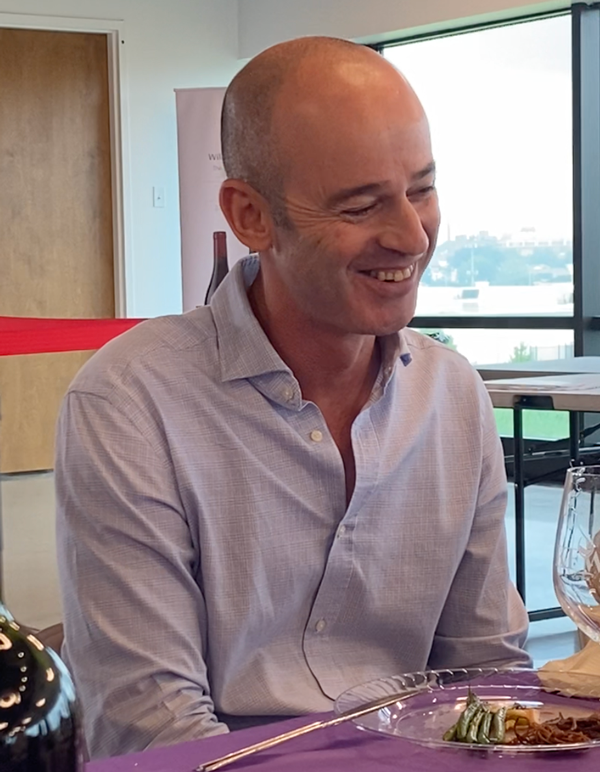

Argaman: One of Israel's Indigenous Varieties
KF: Speaking of indigenous varieties, impressively, Barkan produces a top-scoring Argaman at an incredibly competitive price point. (For a little background, Argaman is an Israeli native grape created from the parents of Carignan and Sousão (native to Portugal), and was originally developed to give Israeli wine more color.) Barkan has taken the Argaman and produced an eminently drinkable and regionally notable wine. Tell us why Barkan sees the potential of Argaman while so many others do not.
IL: Well, the story of Argaman is basically that it was produced to make volume and then we started noticing a long time ago that it produces beautiful wines so we changed the way we see it. Now, Barkan is by far the largest grower of Argaman so we have different possibilities from entry level to moderate and mid-range wines to Beta and other wines that will follow in the more premium range. We actually see the potential both for very juicy, fruity wines with fresh acidity which are just very enjoyable and drinkable, meaning for the more moderate range of prices and everyday consumption, and as for top-end wines we are planting more and more Argaman in the more premium regions, slowly.
KF: As a winemaker, how do you determine how to produce the greatest quality wines from the given climate? Does that change yearly or is there a broader approach to winemaking in a specific region? What are some of your considerations throughout the winemaking process?
IL: I think different vintages bring different challenges and the important thing is to know where you are going and where you are heading and then to use the different tools and techniques based on the quality of the given year. So, I’m not trying to produce wine that’s identical from year to year. I’m trying to produce a wine that is very good or potentially excellent and that is very similar in style from year to year, from vintage to vintage. In order to do so, we need to understand the specific qualities and character of that year and how to improve the good things already apparent and avoid possible negative aspects. So if it’s a very hot year, maybe we need to add more shade in the vineyard or we are not trimming and deleafing, of course, and if it is necessary, we may need to do a green harvest. Or if the acidity is not precise, perhaps we harvest a bit earlier, and so on. So just finding the right answer for that vintage.
KF: Throughout your winemaking career what was your most memorable vintage and why?
IL: I don’t know which vintage was my most memorable, but quality-wise, I liked 2011, as it was the coolest year in Israel. I like fresher styles and cooler styles of wine so I really enjoyed 2011. And, actually, I enjoyed 2022 very much.
KF: At this point in your winemaking career, do you feel that you rely more on years of study of technical winemaking or have you grown more naturally into the role of "the artist as a winemaker?"
IL: I think at this stage I rely on all of the things I've studied and my taste buds, basically. I’m just trying to produce the styles of wines I like myself and which I would like our clients to drink potentially, and so now I just blend my skills and knowledge together.
KF: Ido, what you have achieved in becoming Israel's second MW is incredible. But to do this while raising young children is superhuman. How do you manage your work/life balance? And we’d love some advice: How do you relax after your long days?
IL: The balance between work and family is difficult. I have two little girls and one in the oven (laughs), which will be our third child. So it is very difficult, and trying to balance that is not an easy task when you work for the largest producer. And my relaxation, not surprisingly, is to drink good wine in the evening.
KF: Ido, you are known as an innovative and hands-on winemaker? How do you manage to maintain this approach at a winery producing millions of bottles of wine annually?
IL: Well, in a big winery, we get to make some much lower volumes as well. Like the Beta produced in Israel, and some other wines, we only produce a few thousand bottles, so the creativity finds its way also for our lower volumes, single vineyards, and so on.
KF: Barkan-Segal continues to bring new wines and interesting winemaking processes to the market while maintaining a foothold both in Israel and overseas as a known brand with a reputation of quality and consistency. What do you see for Barkan over the next decade?
IL: Well, I think over the next decade, our role is, I hope, to lead the movement for juicy and fruity wines … just tasty wines … for everyday drinking, while leading the way for Mediterranean varieties and indigenous varieties and new winemaking techniques and old winemaking techniques which are making a comeback. Making orange wines, making whole cluster wines. Everything. I believe we are the size and have the creativity in making high-volume and low-volume wines in all different price ranges. So hopefully we’re on both sides of that scale.
KF: Ido, we thank you so much for your time and graciousness. We so greatly look forward to the wonderful wines you make with each vintage and learning just a little more about your perspective and technique will only serve to enhance our enjoyment. Thank you.
L'Chaim with Barkan
Discover Ido Lewinsohn's quality craftsmanship with Barkan Wine Cellars. From entry-level, everyday wines to more premium and special occasion wines, we invite you to raise your glass with Barkan and toast to life's best moments.
 Get help from an expert like Brad
Get help from an expert like Brad


